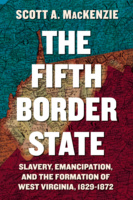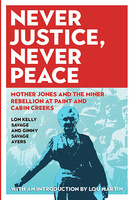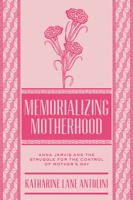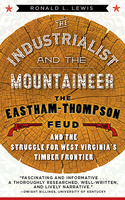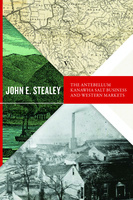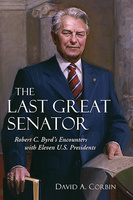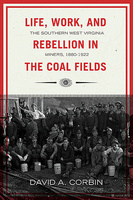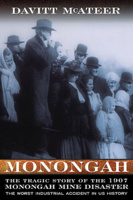The Fifth Border State
Slavery, Emancipation, and the Formation of West Virginia, 1829–1872
One of the first new interpretations of West Virginia’s origins in over a century—and one that corrects previous histories’ tendency to minimize support for slavery in the state’s founding.
A Union for Appalachian Healthcare Workers
The Radical Roots and Hard Fights of Local 1199
History at the intersection of healthcare, labor, and civil rights.
Wheeling's Polonia
Reconstructing Polish Community in a West Virginia Steel Town
Never Justice, Never Peace: Mother Jones and the Miner Rebellion at Paint and Cabin Creeks
Memorializing Motherhood
Anna Jarvis and the Struggle for Control of Mother's Day
The Industrialist and the Mountaineer
The Eastham-Thompson Feud and the Struggle for West Virginia's Timber Frontier
The Last Great Senator
Robert C. Byrd's Encounters with Eleven U.S. Presidents
Life, Work, and Rebellion in the Coal Fields
The Southern West Virginia Miners, 1880-1922 2nd Edition
Monongah
The Tragic Story of the 1907 Monongah Mine Disaster
New paperback edition with an introduction by Robert B. Reich
Monongah: The Tragic Story of the 1907 Monongah Mine Disaster documents the events and conditions that led to the worst industrial accident in the history of the United States. This mining accident claimed hundreds of lives on the morning of December 6, 1907 and McAteer, an expert on mine and workplace health and safety, delves deeply into the economic forces and social-political landscape of the mining communities of north central West Virginia to expose the truth behind this tragedy. After nearly thirty years of exhaustive research, McAteer determines that close to 500 men and boys—many of them immigrants—lost their lives that day, leaving hundreds of women widowed and more than one thousand children orphaned.
The tragedy at Monongah led to a greater awareness of industrial working conditions, and ultimately to the Federal Coal Mine Health and Safety Act of 1969, which McAteer helped to enact. This new paperback edition includes an introduction by Robert B. Reich, Chancellor’s Professor of Public Policy at the University of California at Berkeley and Secretary of Labor during the Clinton administration.

